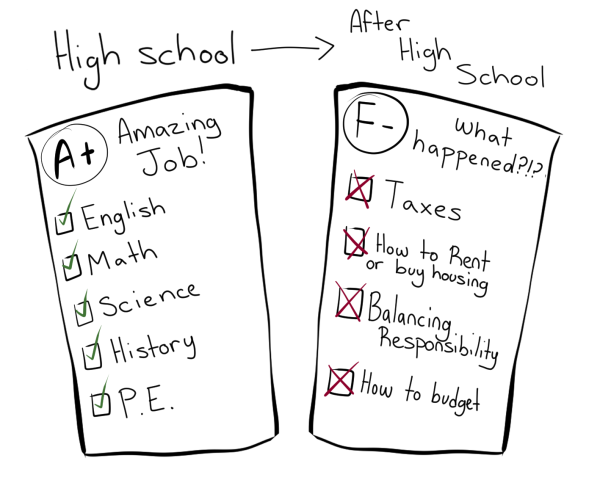Why Concern for CTE Isn’t ‘Hoge-Wash’

Here at Fresno City College we take pride in our Ram’s Football team.
We go to the games, sporting our school colors, shaking pom-poms, enjoying the excitement of our players cracking a player from the other team, head on.
Does anyone take time to think about those players’ futures and the hazards of brain injuries they may sustain during their college careers?
Chronic traumatic encephalopathy (CTE).
Yes, we all better be concerned about it. It is real and scary, no matter how much we would rather look the other way and enjoy our football.
CTE is an Alzheimer’s and dementia-like disease that has been attributed to repetitive hits to the head, causing brain injuries that result in a build up of a protein called tau in the brain. There is no treatment or cure for CTE, and it can only be diagnosed after death.
Considering all of the profound scientific evidence from numerous studies, sport enthusiasts are intent on curtailing the legitimate concerns about the severity of this problem.
CTE isn’t pseudoscience, and we cannot turn a blind eye.
Just a few weeks ago, researchers at Boston University found that 147 college football programs had at least one player with CTE. At least three cases were found in 26 schools.
Georgia had nine cases, presenting the most prevalent example of CTE reported in the nation. CTE is not just an NFL issue.
While credible studies reveal the link between CTE and the NFL, no one is trying to dismantle the league. The scientists are only doing their duty to inform society of the possible aftermath of excessive concussions, whether sustained in football, other sports or even during service in the military.
Recently, the football community is in a hysteria over CTE. Merril Hoge, a former NFL player, recently published “Brainwashed: The Bad Science Behind CTE and the Plot to destroy Football.” His novel tries to debunk the connection between concussions and the development of CTE in NFL players.
Despite many football fanatics’ argument that CTE is not a cause for concern for athletes, it actually truly is. Not only is it a cause for concern for those who play football, but it’s also a concern for those who play any contact sport involving the head, and it is of special concern for those who begin playing sports at a younger age.
Hoge prefers to “not come down too hard on football.” Ironically, he actually had to retire after only receiving two concussions.
He later won a lawsuit against a Chicago Bears team doctor for not informing him of the risks of concussions. Pretty ironic considering the basis for his book right?
Hoge’s book thwarts scientific evidence from a study done by Dr. Ann McKee of Boston University who discovered that 110 out of 111 brains examined had CTE. Hoge claims that the CTE study is pseudoscience and the media has a sensationalist agenda to destroy America’s beloved game.
People like Hoge are mainly focused on capital. The fact that he went from suing the league for not informing him of the hazards of head trauma to ridiculing accredited scientists and their studies confirming the link between CTE and the League is evidence of his motives: a bankroll.
Hoge may have a point in saying that CTE is not just a concern for those who play football but for other sports, such as soccer and ice hockey and even for those who have served in the military. He should not, however, deny its prevalence by claiming that the medical findings are false.
In a 2015 study done by the Mayo Clinic, McKee had tested brains that had never been involved in contact sports. Of the 198 brains, not even one had any signs of CTE. This would be the control group.
Jeff Miller, executive vice president of health and safety for the NFL, acknowledged a link between football and CTE in a statement made before the U.S. House Energy and Commerce Committee in 2016. The league also issued a statement acknowledging the same — “The comments made by Jeff Miller yesterday accurately reflect the view of the NFL.”
This issue matters a great deal.
Players may argue that they play for the love of the sports, but the price is too steep — alzheimer’s, dementia, and even depression so severe that they commit suicide — I say we speak out now.

Tamika Angie Rey is a 32-year-old second year college student who is striving to become a professional journalist. She is currently majoring in journalism...





